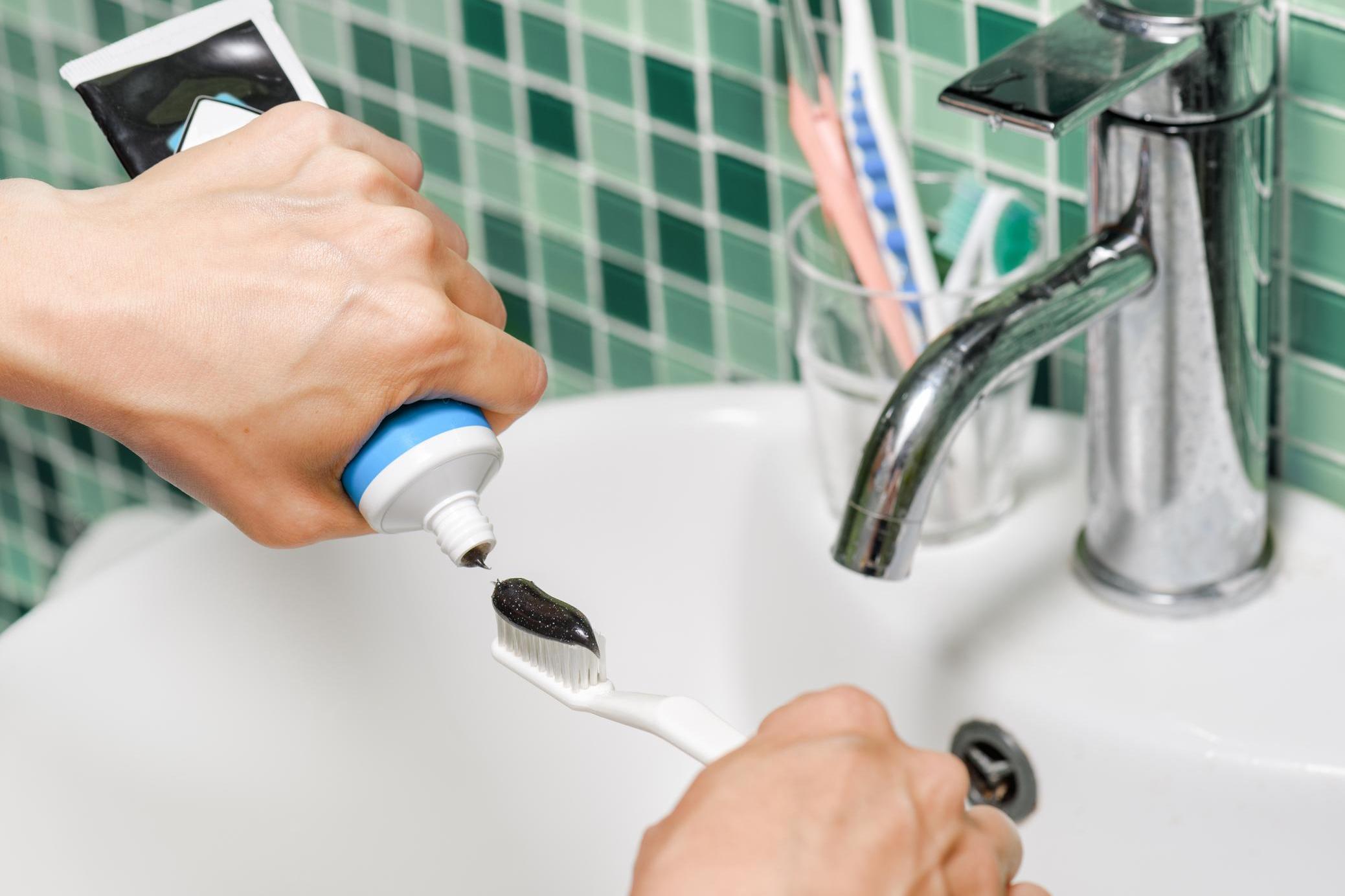The Independent's journalism is supported by our readers. When you purchase through links on our site, we may earn commission.
20 Pledges for 2020: Why I ditched the Colgate and switched to sustainable toothpaste
Truly ethical and sustainable beauty brands aren't easy to find. Can Jessica Jones go a whole year without using anything else?

When first faced with the challenge of making my beauty routine entirely sustainable, changing my toothpaste was not the first thing that came to mind. I focused on make-up and cleansing products, the kinds of items that have recently gained a lot of traction in the sustainable beauty world. But since the arrival of a global pandemic that has forced me to remain at home most of the time, I have barely worn any make-up and therefore have had no use for make-up removing products either - don’t worry, I have still washed.
Covid-19 has given me more awareness of the products I am using that could be more sustainable. It has also given me more time to spend carefully sifting through all the options online instead of rushing to the shops and choosing what appears to be the most environmentally conscious item stocked in store.
Countless products are guilty of ‘greenwashing’ - a term coined to describe a product which is labelled with terms like ‘organic’ but which in reality is much less environmentally conscious than it claims to be. Online it is easier to check and research ingredients, production processes and the company’s ethical values.
One of the unsustainable products that I knew I had been ignoring was toothpaste. Always loyal to Colgate, I have never really bothered straying to another brand - maybe the odd tube of Oral-B or Sensodyne but not exactly taking any risks. Before this year I certainly had never heard of any sustainable or even environmentally conscious toothpastes. With most personal care items, the environmental damage stems from three components of the product: the ingredients, the packaging, and how it is used.
Toothpaste is no exception. It’s ingredients often consist of many toxic chemicals like fluoride and SLS that are spat out and washed down drains where they cause water pollution. The squeezy toothpaste tubes are made from mixed materials that are difficult to recycle and end up in landfills. Any issues that toothpaste causes are multiplied by the billions of people around the world who all use it at least once, probably twice, daily. Teeth might be cleaner, but the environment is not.
So what sustainable toothpaste options are out there?
Firstly, it is possible to make your own toothpaste from baking soda and coconut oil. However, this didn’t sound that appealing to me and I’m sure that the hassle of making something so easy and convenient to buy might be enough to put most people off.
Other options include solid toothpaste like this one. Lush offers toothpaste jelly and tabs, which could be really useful for travel or camping when bathrooms might not be that accessible. Brands like Georganics and Truthpaste also offer sustainable toothpastes made from natural ingredients and packaged in zero-waste reusable and recyclable glass jars. These can cost up to £10 though and, unfortunately, the student budget does not allow for such extravagant spending on toothpaste. Of course, if you can afford to spend this then these brands might be a great option and they come in different flavours and have either mineral-rich or whitening properties.
Finding a balance between affordability and sustainability is not an easy one. The cheaper natural toothpastes that I found came at the cost of less sustainable packaging. AloeDent and Ecodenta are two such brands that use natural ingredients but still use plastic toothpaste tubes which are difficult to recycle.
Another thing I had to consider was the toothbrush itself. Many bamboo toothbrushes are available, which Colgate have even started making. These are a sustainable dream – 100% biodegradable and inexpensive. I use an electric toothbrush, as do many people, but luckily the internet had a solution for this too – recyclable heads with charcoal bristles which have a return scheme for recycling them. Electric toothbrushes last a long time and have rechargeable batteries. I am aiming to make items that I have already purchased as sustainable as possible rather than creating waste by throwing them away.
Subscribe to Independent Premium to bookmark this article
Want to bookmark your favourite articles and stories to read or reference later? Start your Independent Premium subscription today.

Join our commenting forum
Join thought-provoking conversations, follow other Independent readers and see their replies